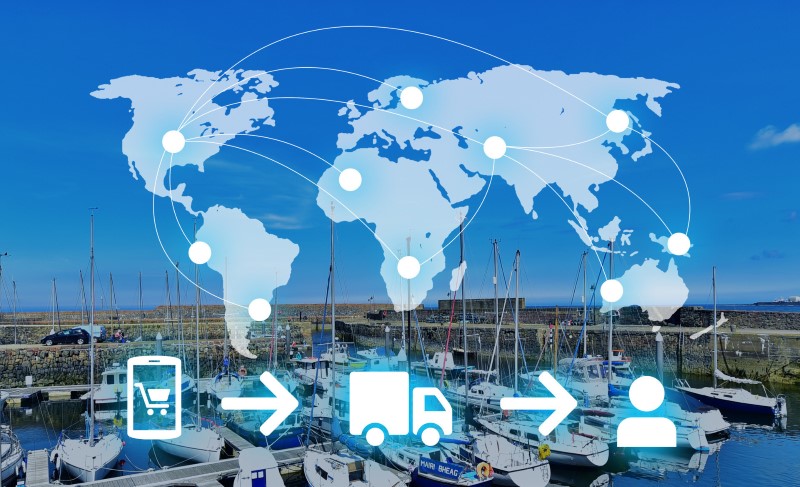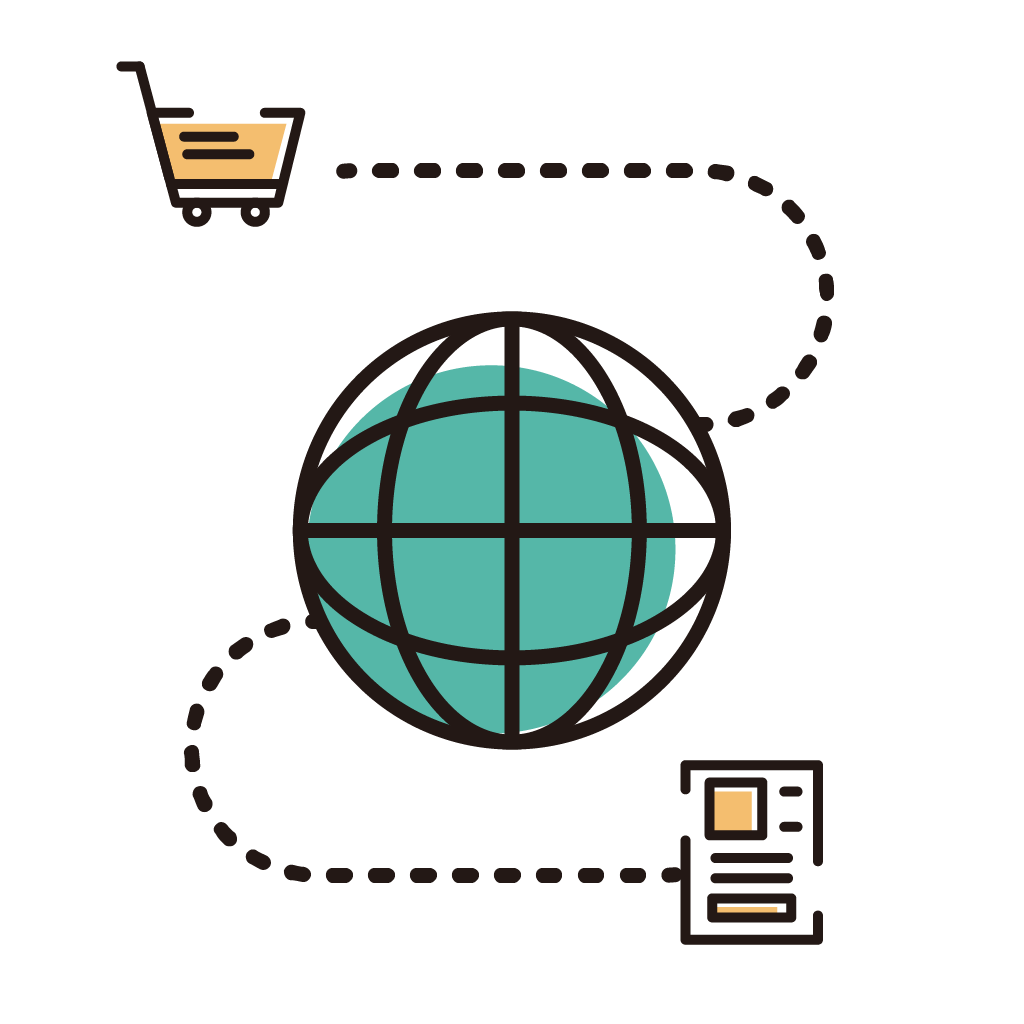In the fast-paced world of global logistics, tracking plays a pivotal role in ensuring the smooth flow of goods across borders. With increasing demands for timely deliveries and efficient service, global logistics tracking has become essential for businesses aiming to provide transparency, reliability, and cost-efficiency. Leveraging tracking solutions in international shipping enables companies to gain real-time insights, streamline their operations, and meet customer expectations in today’s competitive market. This article explores the essential features, benefits, and value of global logistics tracking, demonstrating why it is invaluable for modern shipping operations.

1. What is Global Logistics Tracking?
Global logistics tracking is the technology-driven process that allows companies and their customers to monitor the movement and status of shipments throughout the entire supply chain journey. Using tools like GPS tracking, RFID tags, and cloud-based platforms, logistics tracking provides real-time updates on a shipment’s exact location, estimated arrival times, and potential delays.
Key Features:
Real-Time Tracking: Instant updates on a shipment’s exact location and estimated delivery time.
Automated Alerts: Notifications for unexpected delays, ensuring businesses can respond proactively.
Detailed Reporting: Comprehensive data insights that allow companies to monitor performance and optimize routes.
Seamless Integration: Compatible with various logistics software, making it easy for companies to integrate with existing systems.
With these features, global logistics tracking enhances transparency across the supply chain, empowering companies to maintain efficient and dependable shipping processes.
2. Top Benefits of Global Logistics Tracking for International Shipping
Enhanced Transparency and Customer Confidence
One of the most significant advantages of logistics tracking is the transparency it offers. Customers increasingly expect clear and consistent updates on their shipments, from origin to destination. Real-time tracking not only provides this transparency but also fosters trust, as clients feel more assured knowing where their goods are at any moment.
Boosted Customer Satisfaction: Customers receive real-time information on delivery status, reducing concerns over delays.
Improved Accountability: Transparency at each stage builds confidence and strengthens customer loyalty, as businesses can be held accountable for delays and errors.
Reduced Operational Costs
By enabling logistics managers to monitor and adjust shipping routes, tracking solutions help reduce fuel costs, prevent unnecessary detours, and lower overall operational expenses. Data from tracking solutions also provide insights into delivery bottlenecks, enabling companies to make adjustments that improve efficiency.
Optimized Routes: Tracking allows for route adjustments based on traffic, weather, and other factors.
Fuel and Cost Efficiency: Reducing idle time and streamlining operations directly impacts cost savings.
Proactive Problem Resolution
Global logistics tracking provides automated alerts that notify companies of potential issues, such as delays due to customs or traffic congestion. This allows businesses to react promptly, address the root cause, and inform customers of any changes in delivery times.
Early Detection of Delays: Managers can detect disruptions early, minimizing the impact on customers.
Responsive Customer Service: With real-time data, customer service teams can respond to inquiries with accurate information, enhancing the customer experience.
Enhanced Security and Loss Prevention
Tracking technology helps mitigate the risk of theft, loss, or misplacement during transit by providing constant visibility into a shipment’s location. GPS and RFID technology allow companies to detect unusual activities quickly, such as route deviations, making it easier to recover misplaced or stolen items.
Reduced Theft Risk: Tracking reduces risks by providing real-time alerts in case of unusual behavior.
Streamlined Recovery: Enhanced tracking allows for faster recovery of lost or misplaced shipments.
Compliance and Streamlined Customs Processing
International shipping involves navigating complex customs regulations and compliance requirements. Tracking technology helps ensure timely documentation, reducing the likelihood of customs delays and penalties.
Accurate Documentation: Automated tracking updates help ensure documentation is up-to-date for customs.
Compliance Assurance: Tracking systems assist in maintaining compliance, avoiding delays from regulatory issues.
3. Use Cases of Global Logistics Tracking in International Shipping
E-commerce and Retail
In the e-commerce industry, rapid deliveries and real-time tracking are crucial for customer satisfaction. Global logistics tracking provides online retailers with the insights they need to improve delivery timelines, handle returns more effectively, and provide accurate delivery estimates to customers.
Manufacturing and Industrial Supply Chains
For manufacturing companies, logistics tracking is essential to ensure the timely arrival of materials and components required for production. Tracking technology minimizes production delays by keeping managers informed of shipment status, enabling them to manage schedules more effectively.
Perishable Goods and Pharmaceuticals
For industries that rely on time-sensitive deliveries, such as perishable food products or pharmaceuticals, logistics tracking ensures that goods arrive within a specific timeframe to maintain freshness or efficacy. Temperature-sensitive tracking can also monitor the condition of goods in transit, maintaining the quality of sensitive products.
High-Value Goods
For high-value goods like electronics or luxury items, tracking provides added security. Companies can monitor and secure valuable shipments, ensuring they arrive intact, without loss or damage.
4. Key Features of Global Logistics Tracking Systems
Real-Time Data Visualization
Real-time tracking systems offer data visualization tools that allow logistics managers to monitor all shipments on a single platform. These tools provide a map interface displaying the locations of shipments, delivery status, and estimated arrival times.
Intuitive Dashboard: Visual maps provide a clear overview of shipment locations, statuses, and timelines.
Customizable Alerts: Notifications can be customized for various scenarios, such as delays, detours, or arrival times.
End-to-End Visibility
Complete visibility from pickup to final delivery enables businesses to see exactly where goods are at all times. End-to-end tracking helps ensure accountability and transparency across the entire logistics process.
Single-Platform Management: All logistics activities can be monitored and managed from a single dashboard.
Enhanced Communication: Customers can be informed of delays or other issues, enhancing trust.
AI-Powered Predictive Analytics
Some advanced tracking solutions use AI and machine learning algorithms to forecast potential disruptions and optimize delivery routes. Predictive analytics enable companies to anticipate bottlenecks, enhance accuracy, and improve service quality.
Proactive Decision-Making: AI-based analytics help identify potential delays and reroute shipments proactively.
Operational Efficiency: Insights generated help improve service efficiency, further reducing costs.
Customizable Alerts and Notifications
Tracking systems offer customized alerts that notify logistics managers and customers of any changes in status, such as delays, traffic congestion, or customs holds. Automated alerts improve communication, enabling customers to stay informed and logistics teams to resolve issues swiftly.
Timely Notifications: Alert features keep both companies and customers informed of delays.
Flexible Customization: Alerts can be adjusted to suit specific needs, ensuring relevant updates are delivered.
5. The Value of Global Logistics Tracking in Today’s Market
Global logistics tracking offers essential benefits for companies involved in international trade, providing transparency, operational cost savings, and improved customer satisfaction. These tracking solutions make it easier to navigate the complexities of global shipping, mitigate risks, and ensure high standards of efficiency.
Key Value Points:
Enhanced Transparency: Customers receive real-time updates, building trust and confidence.
Operational Efficiency: Companies can reduce costs through route optimization and early detection of disruptions.
Security: Tracking minimizes the risk of theft and loss, providing peace of mind for high-value shipments.
Compliance and Reduced Delays: Up-to-date documentation helps maintain compliance, reducing customs delays.
In a competitive market, global logistics tracking enables businesses to meet high customer expectations, streamline complex operations, and maintain a reliable supply chain.
Conclusion
Global logistics tracking is a game-changer for companies engaged in international trade. By providing transparency, efficiency, and security, it empowers businesses to deliver seamless service even amid logistical complexities. From reducing costs to ensuring real-time updates and minimizing delays, tracking technology strengthens the entire supply chain, making it a crucial investment for companies aiming to stay competitive in global markets.
As shipping demands increase and customer expectations evolve, investing in a robust global logistics tracking system becomes essential. For businesses committed to providing efficient, transparent, and reliable international shipping, logistics tracking is the cornerstone of successful, streamlined global trade.























